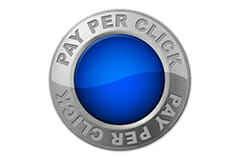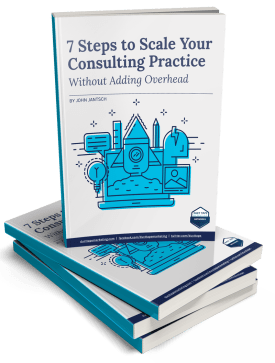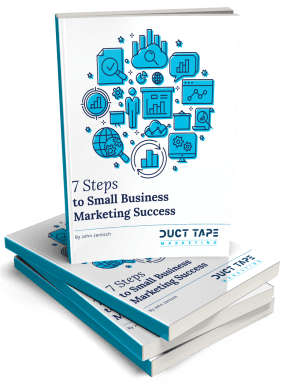
PPC won’t make you wealthy overnight, spawn record-setting sales or turn your company into the ‘next big thing.’ Like any tool available to marketers, there are some quick wins, but the long-term gains are where you’ll excel. Here are six PPC misconceptions keeping your campaigns from success and what you can do about it.
1. A PPC Campaign Will Increase Your Sales Overnight
Effective bids and keywords may raise your campaigns to the top and give you some quick wins, but for others, these efforts are futile. Niche products and segments often have a harder time reaping the benefits of PPC, simply because there are fewer people searching for that product or service.
Regardless if you have several quick wins or minimal success with PPC, stick with it. PPC is not a set-and-forget function, and it takes time and effort to optimize campaigns for success. However, be realistic in your expectations, too: you may temporarily increase sales, but it’s up to you to maintain that growth.
2. A PPC Campaign’s First Two Weeks Are Indicative of Long-term Success
It takes time for your campaigns to settle, and very rarely are your efforts perfect right out of the gate (and if they are, they won’t be for long). Testing and optimizing a campaign can take up to three months before it truly settles. During this time, patterns and opportunities present themselves that can be used to adjust your ongoing campaign efforts. These adjustments can lead to a fruitful campaign performance.
In the long-run, variations in your PPC campaign are signs of a good, strong, and healthy performance. Don’t cut your testing short in haste. Stick it out, monitor performance, and make adjustments to maximize your ROI.
3. PPC Campaigns Are Only Profitable on Google
It’s estimated that 65% of all searches are performed on Google so naturally it makes sense to concentrate advertising efforts there, right? Wrong. Google AdSense is likely an important part of your marketing mix, but you’ll presumably have a better ROI by taking a portion of your budget elsewhere. Tier 2 search engines have searches performed, but advertising here is a fraction of the cost, making them not only profitable but an excellent complement to an AdSense campaign.
4. All Keywords Generate Good Traffic
Developing campaigns around all keywords that could seemingly be of interest to your customers is tempting, but this blanket catch-all approach can be costly and leave you with no results.
For instance, as a real estate developer offering elite condos in an urban setting, the marketing team may choose the keyword ‘Urban.’ However, if this keyword is not properly optimized using negative keywords, a teenager’s search for ‘Urban Outfitters’ might result in a click with no chance of converting. On paper, ‘Urban’ might be a strong keyword, but it’s unlikely customers of Urban Outfitters are also looking for a high-end condo.
5. PPC Is a Miracle Worker
If there are preexisting sales issues, PPC won’t necessarily solve all your troubles. It might draw attention toward your product, but it won’t convince people to buy it.
Take the adage “it’s like selling ice to an Eskimo.” Sometimes things are out of your control: why would an Eskimo buy more ice when they have an unlimited supply? The same is true for a luxury yacht maker in a recession or a snow blower manufacturer in an unseasonably warm winter. PPC is great when there’s a need for the product or service, but it can’t make people purchase something they don’t need. Instead, focus your efforts where there’s a need.
6. PPC Raises Organic Search Results
Good SEO practices increase your visibility in organic search results, not PPC. The combination of success with both PPC and SEO can increase your visibility, which increases your likelihood of converting. But simply having a PPC campaign won’t affect your organic search results.
For better long-term results, effective PPC campaigns are important, but so is strong SEO. PPC will provide a few quick wins—but ranking organically is sustainable, scalable, credible, and an all-around healthy business practice.
PPC is not designed to make you a millionaire overnight. But, it can help you increase brand exposure, gradually raise sales, and successfully grow your business while making you feel like a million bucks.
If you liked this post, check out our Small Business Guide to Paid Search.
 Michelle Brammer writes about pay per click and pay per call marketing, as well as digital ad fraud and small businesses. Michelle is the Director of Marketing for eZanga, a digital advertising firm focused on pay per click, pay per call, and ad fraud management. Previously, she held senior marketing and sales management positions with Genji Sushi, Dominion Enterprises, and Frito-Lay North America. She regularly blogs at http://www.ezanga.com/articles/author/michelle-brammer and can be found on Twitter @eZangaMichelle.
Michelle Brammer writes about pay per click and pay per call marketing, as well as digital ad fraud and small businesses. Michelle is the Director of Marketing for eZanga, a digital advertising firm focused on pay per click, pay per call, and ad fraud management. Previously, she held senior marketing and sales management positions with Genji Sushi, Dominion Enterprises, and Frito-Lay North America. She regularly blogs at http://www.ezanga.com/articles/author/michelle-brammer and can be found on Twitter @eZangaMichelle.



